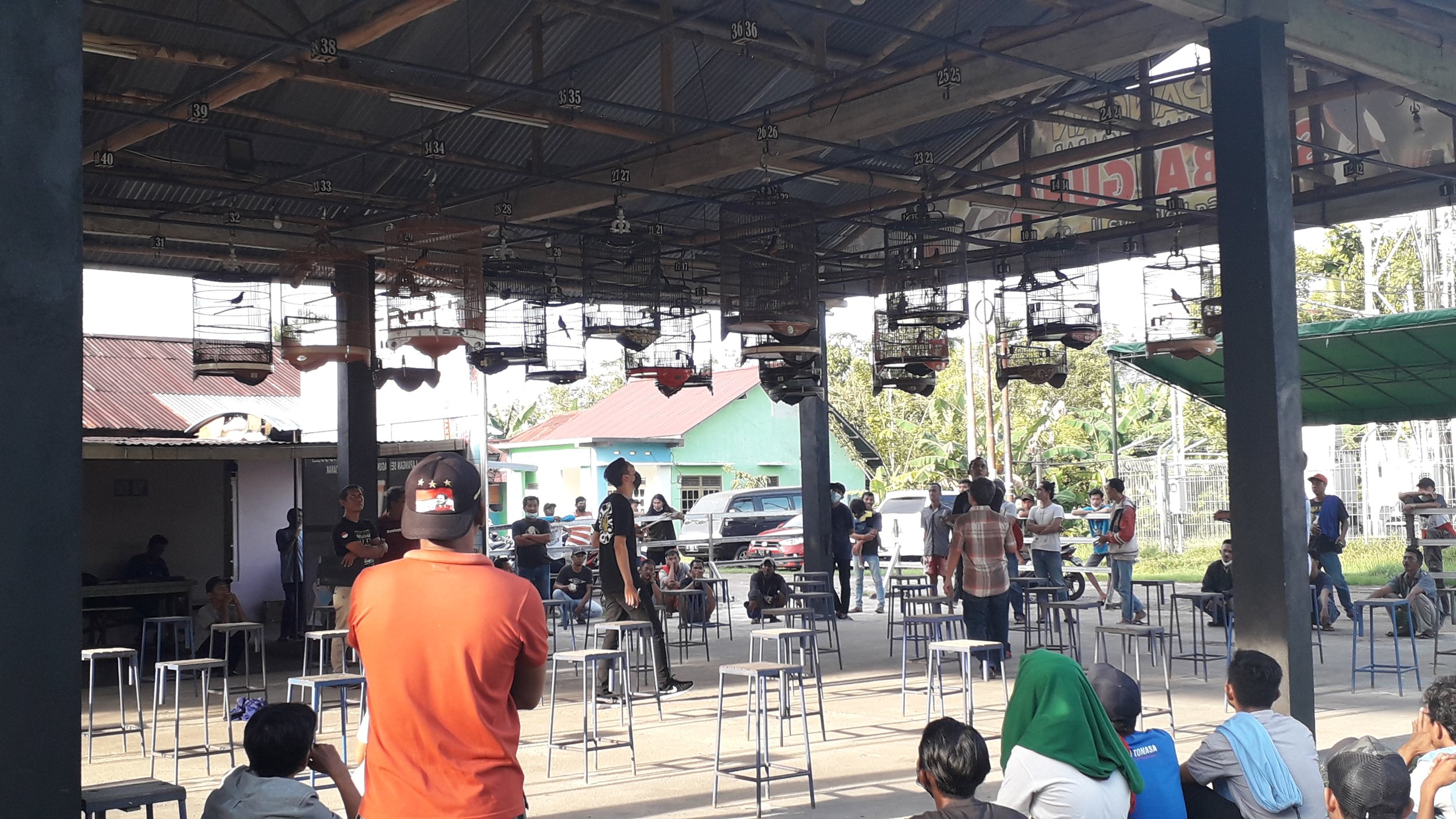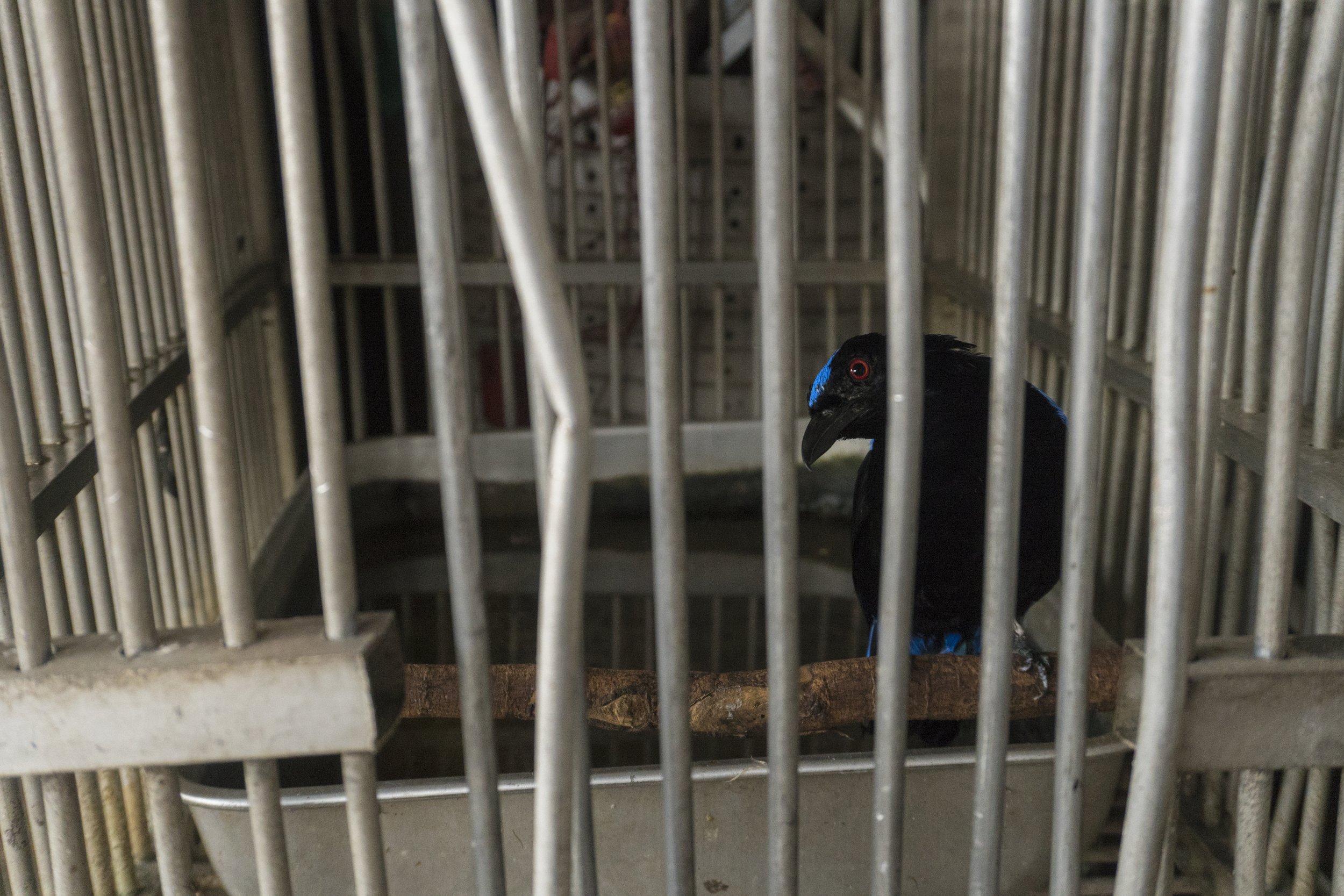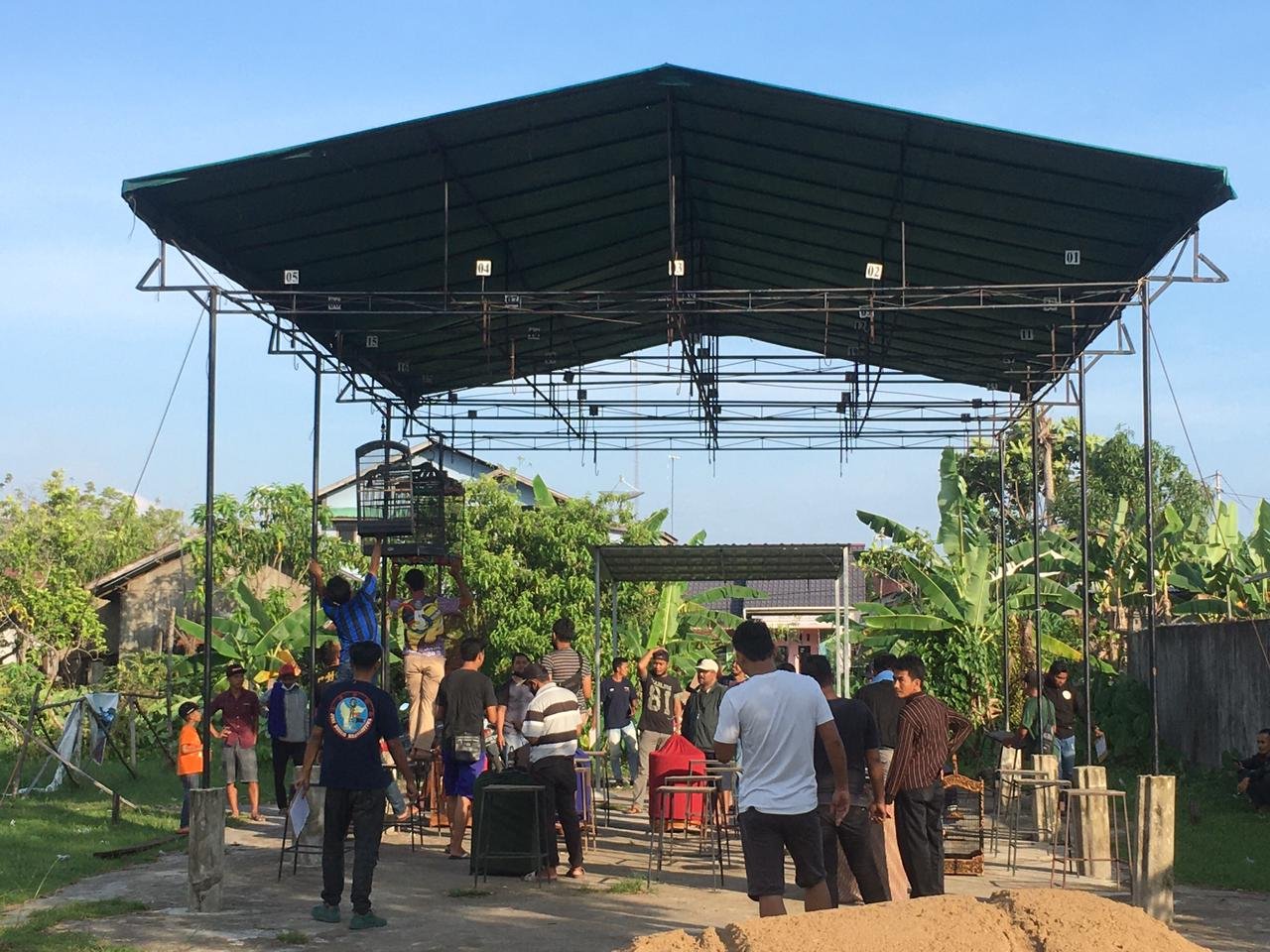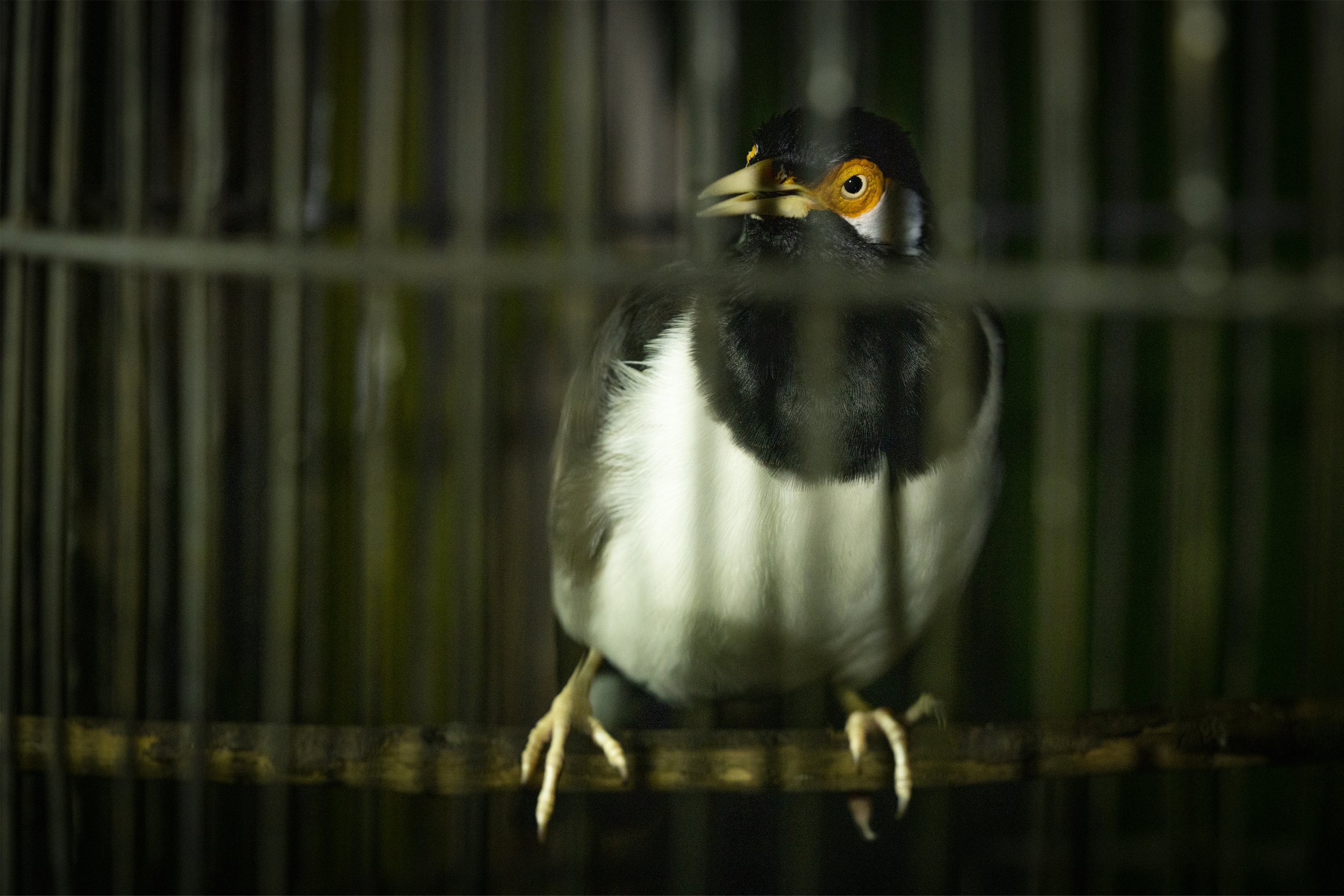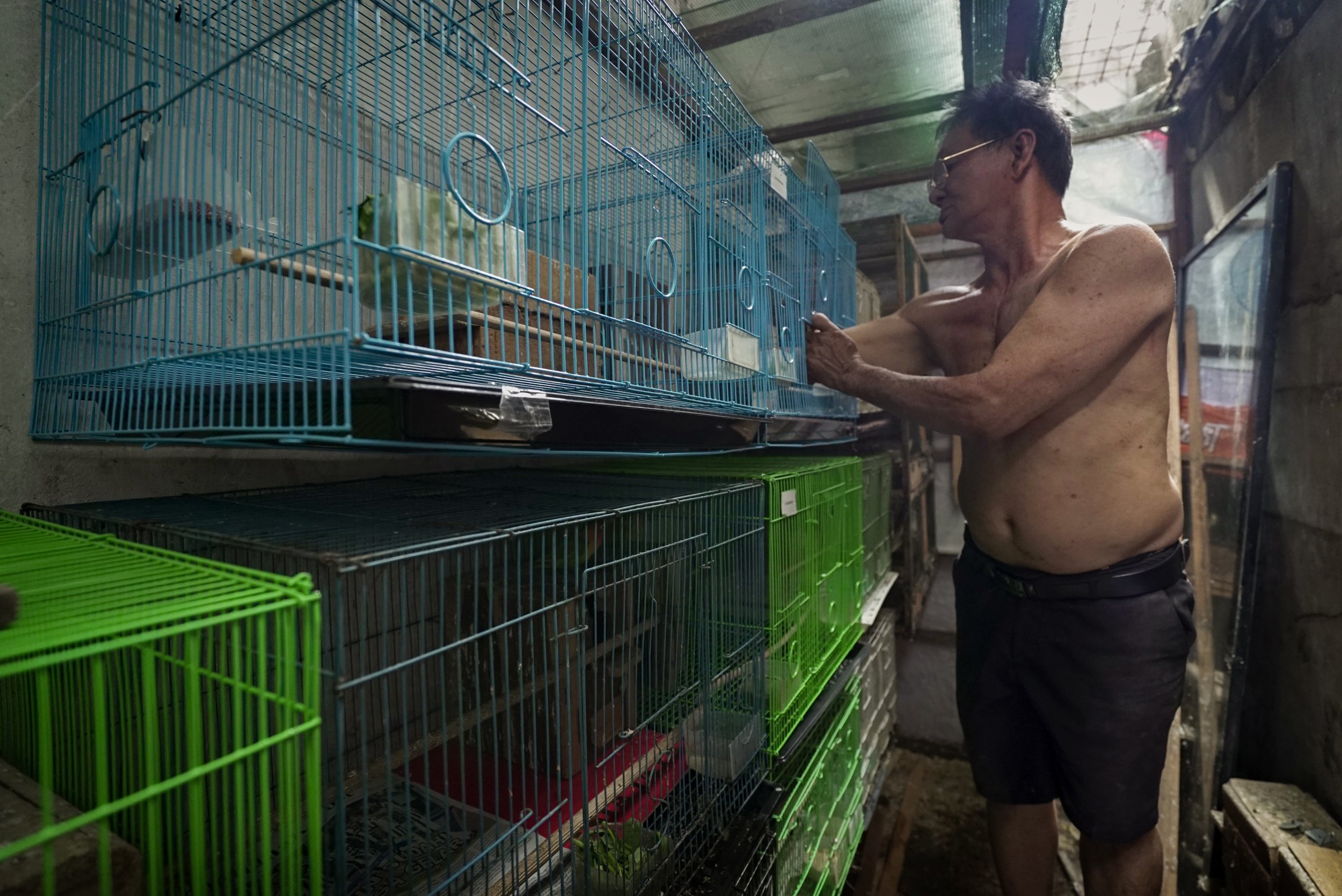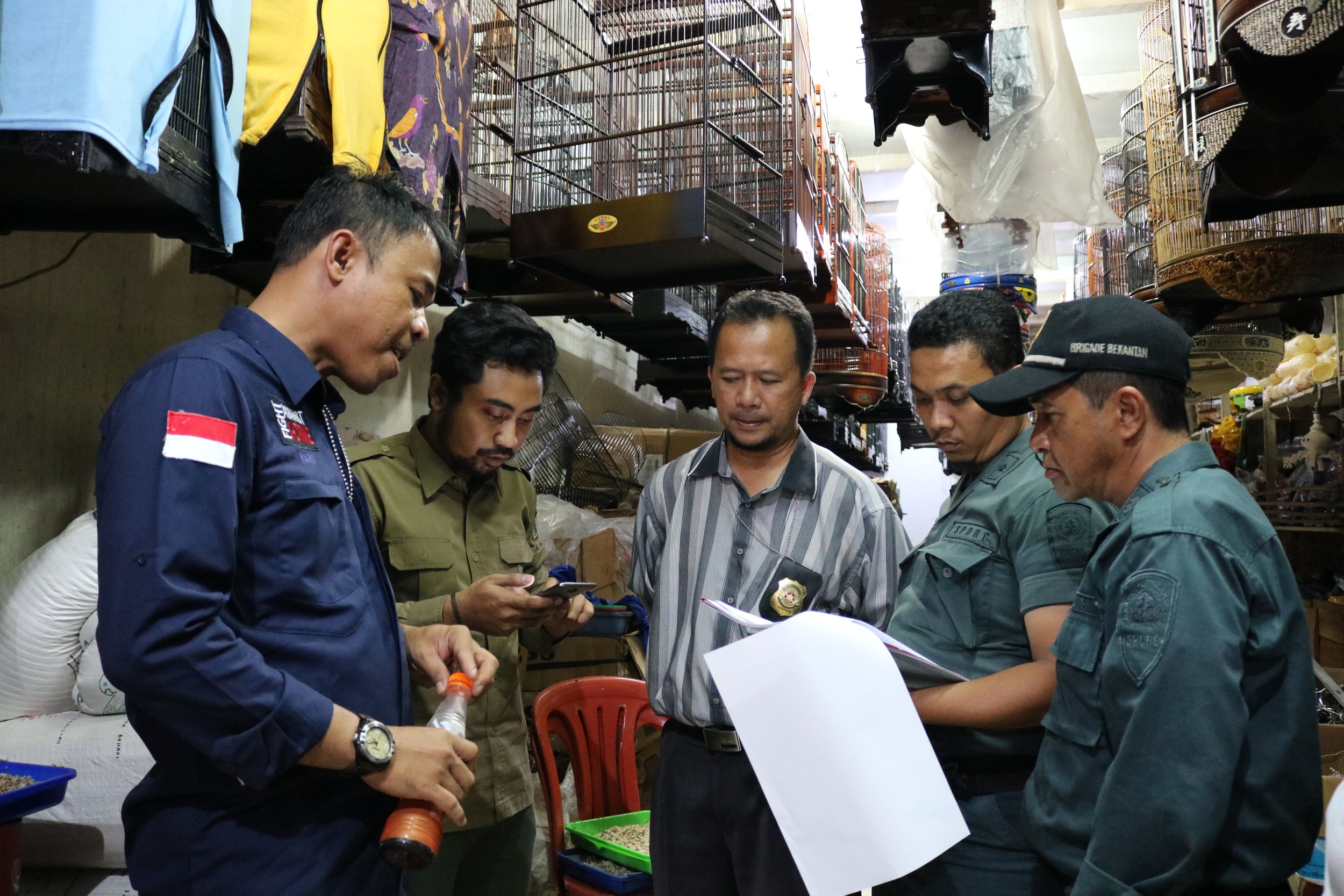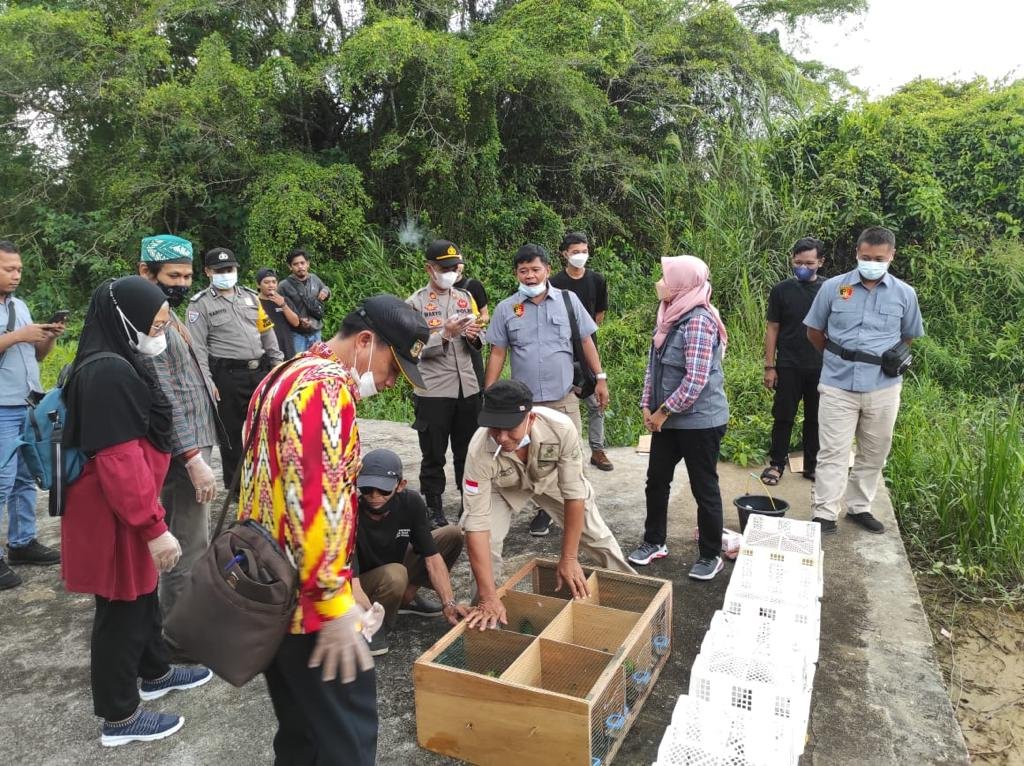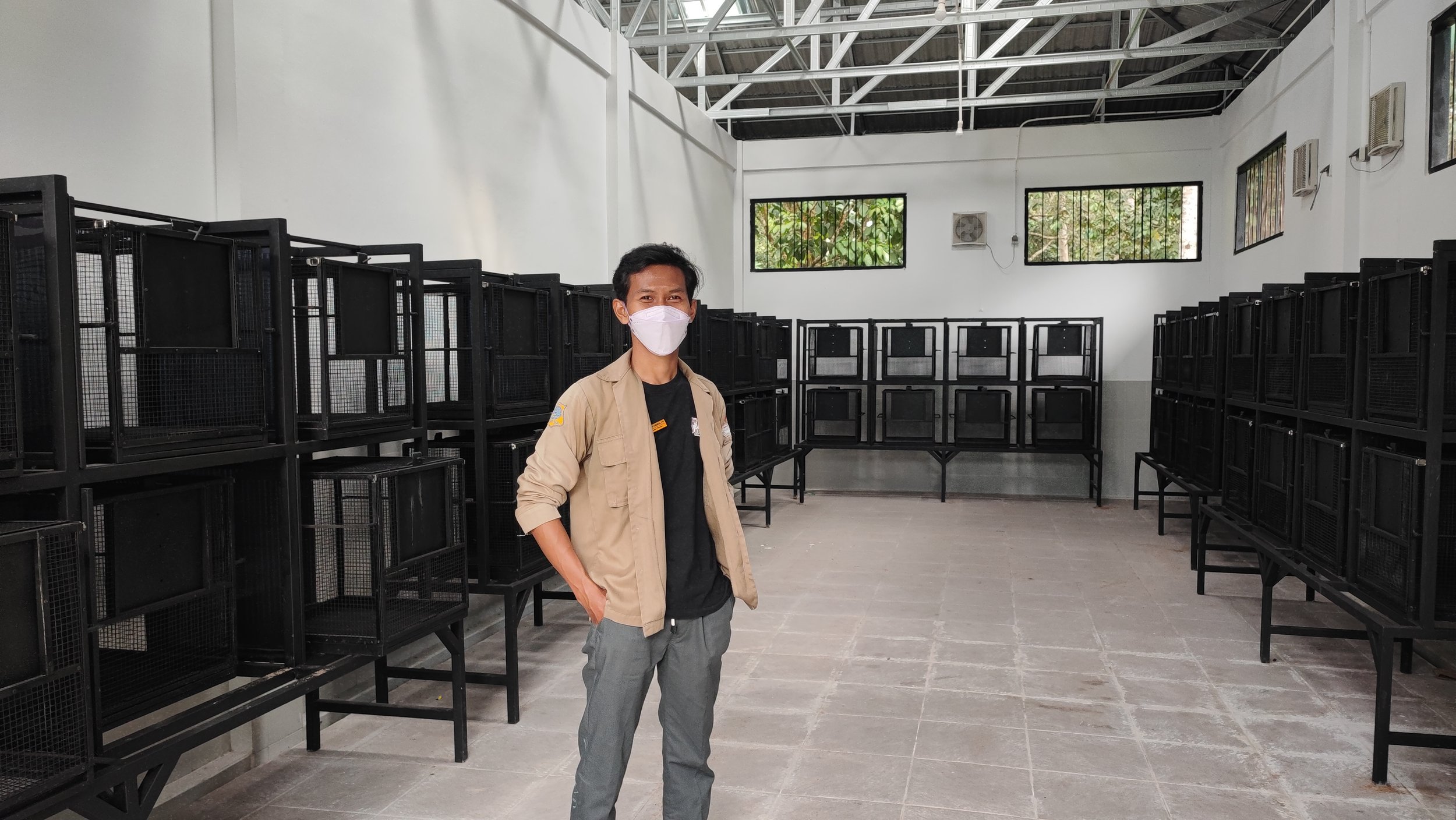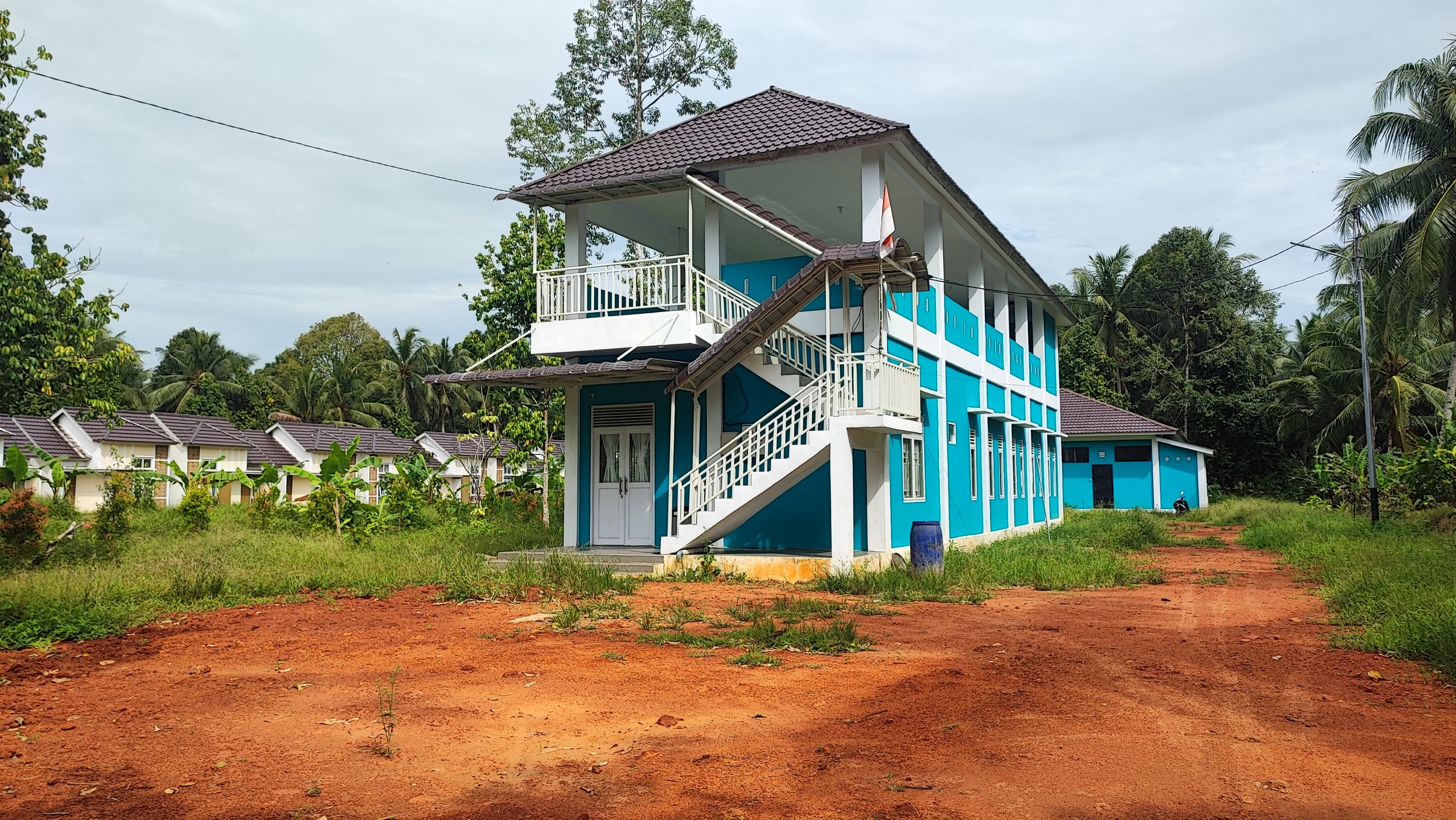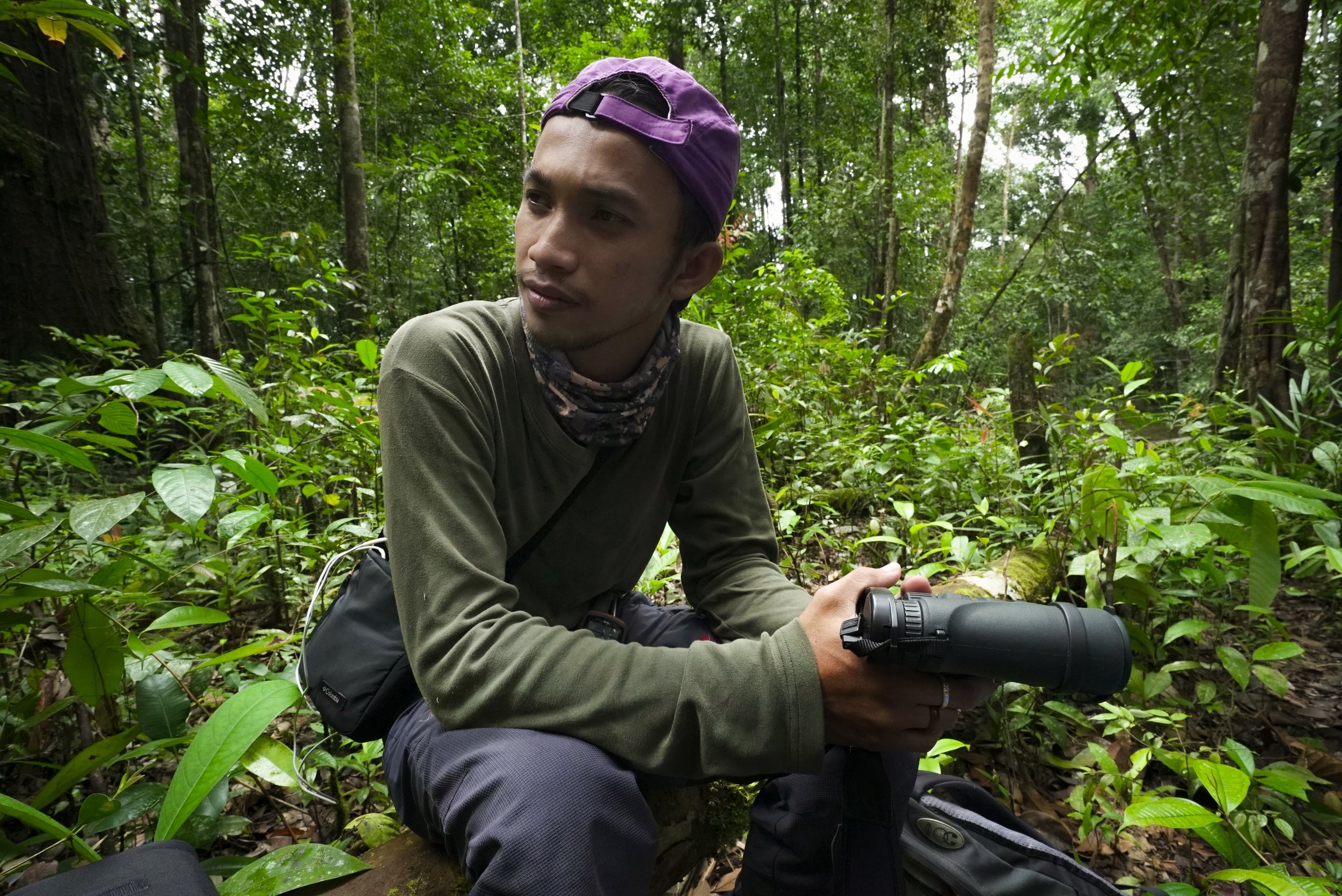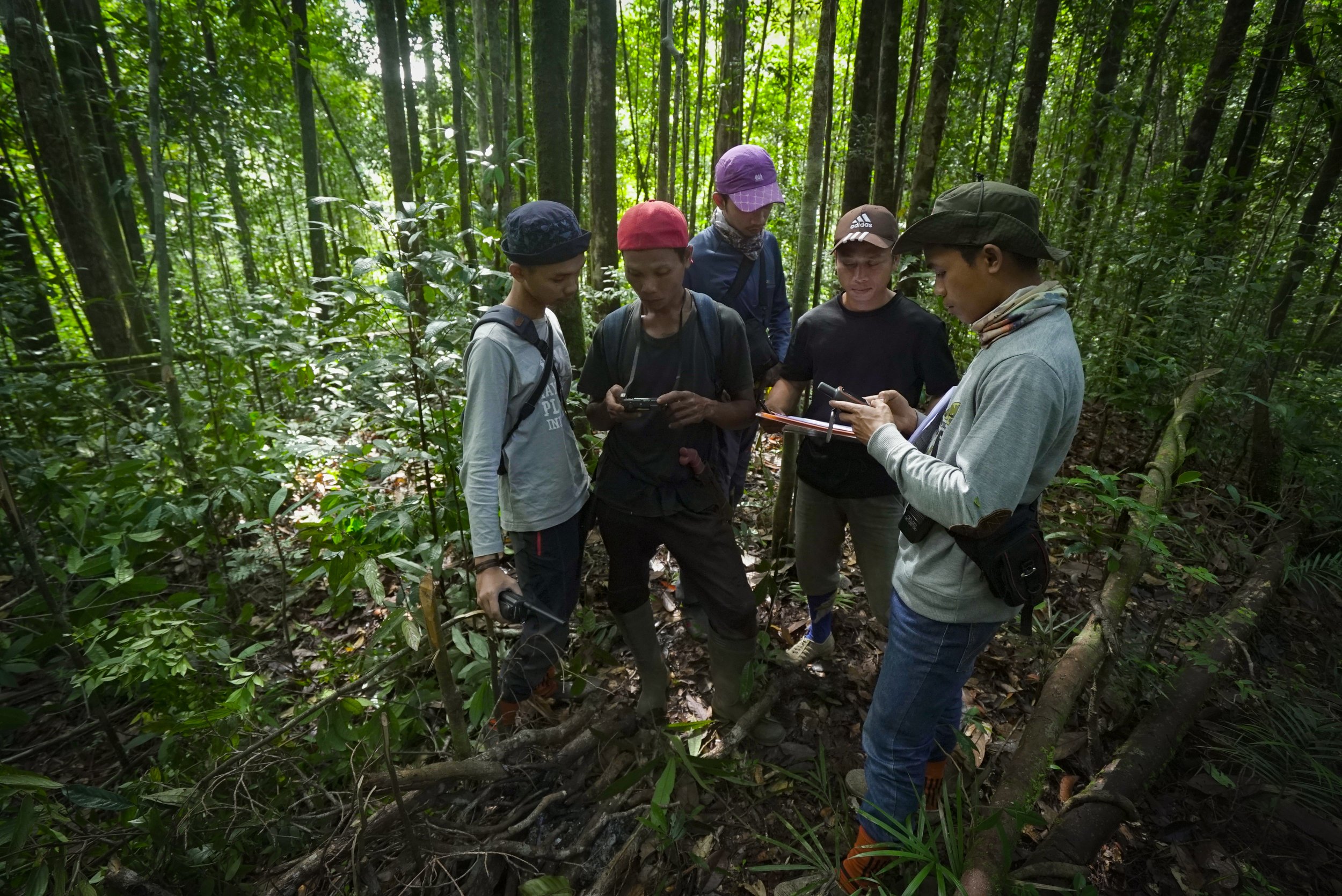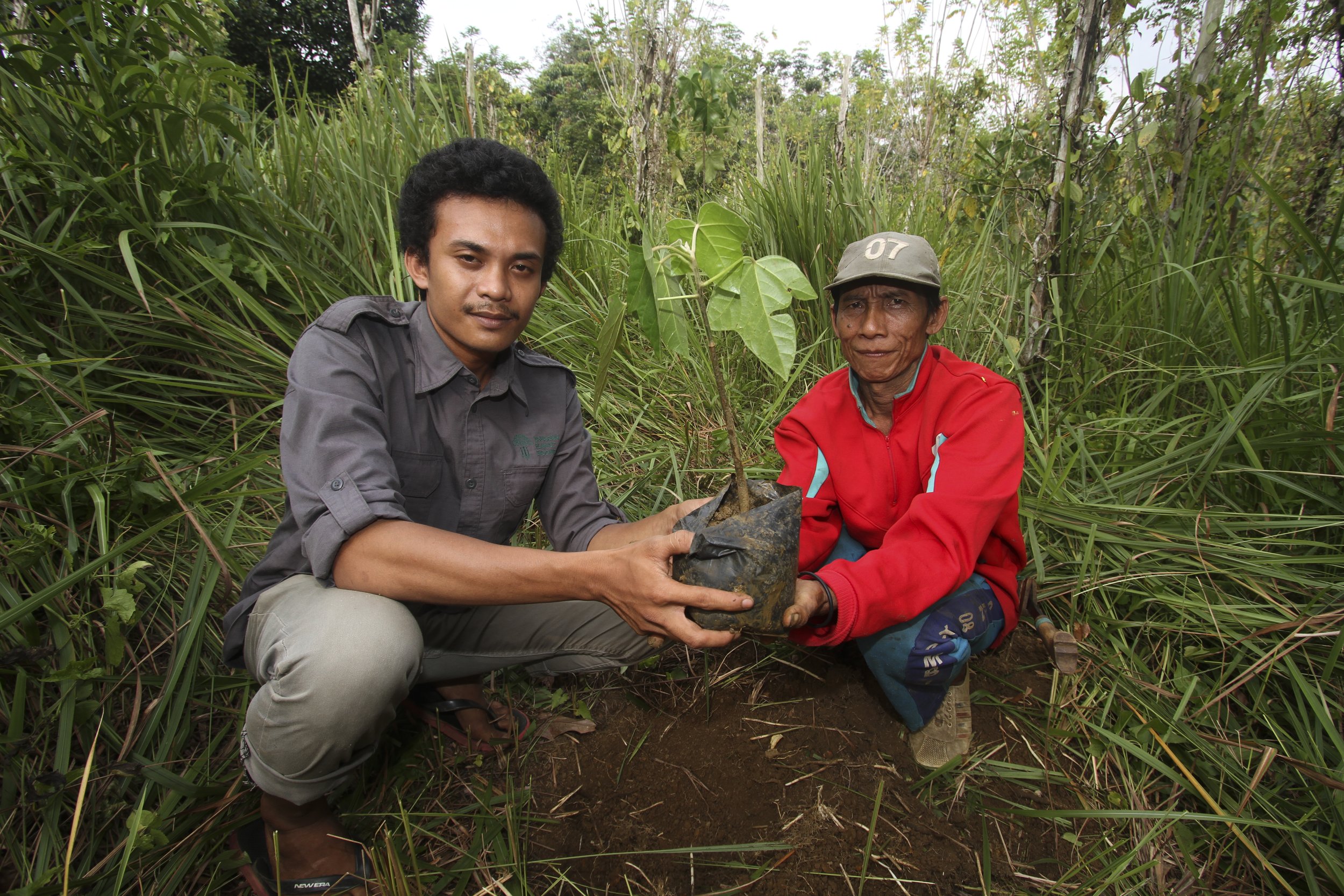Is a single song in a cage worth a silent forest?
Dozens of small, cone-shaped cages dangle from rafters high above the ground on a humid Indonesian afternoon. They contain songbirds. Small, chirping birds of a variety of species are pitted against one another for the sole purpose of determining which bird has the best and longest-lasting call. Beyond the cages, walls of men are shouting at their birds, believing duress encourages their birds to sing louder. Winners are judged by officiants, and owners can take home several thousand US dollars in prize money. With such high stakes, these songbird competitions are becoming more popular, and wild Indonesian songbird populations are becoming rarer.
Rooted in the “Golden Age” of Indonesia, owning songbirds is a symbol of sophistication and wealth and is a tradition that has expanded beyond the Island of Java over the last several centuries. Not all songbirds end up in contests; most remain in cages displayed prominently outside village homes. To feed this modern demand, poachers across Indonesia enter what forests are left in search of birds. The methods that are used are many but mainly consist of traps and lures. A thin tree bent over in the jungle with glue smeared on its bark catches the feet of a songbird, who struggles to get free, often leading to broken limbs and potential death in the process. Glue trapping is also indiscriminate, meaning it is not just songbirds that get trapped, other birds and tree-dwelling creatures also suffer. Once collected, birds are placed in boxes and bags, removed from the forest to be sold to middlemen who then traffic them into bird markets. Many birds are trafficked thousands of miles over several days to weeks, many do not survive the journey. For every bird sitting in a cage outside of someone’s home, there are perhaps dozens, if not a hundred birds that didn’t survive that trip.
A hill myna kept outside of a home in Western Borneo.
Among Javanese households alone, it is estimated that 75 million caged birds are kept. Across Kalimantan, 151 species of Indonesian songbirds have been recorded for sale in markets, although the number of birds kept among homes is hard to estimate.
“I am quite surprised when I see protected birds being traded in bird shops. My feelings are quite a dilemma, between sad and sorry to see that these birds are being traded and living in cages where they should live freely in nature.” Says “A”, the Wildlife Trade Unit Coordinator of Yayasan Planet Indonesia.
At Yayasan Planet Indonesia, we have a dedicated Wildlife Trade Unit actively engaged in curbing the illegal songbird trade. As supply chains for illegally sourced wildlife are complex and span across multiple nations with a diverse set of players, understanding where wildlife is sourced, the transit routes, and demand centers is crucially important. In addition, social and economic research surrounding the implications of the illegal songbird trade and its impacts on players is a major knowledge gap and creates barriers in the design and implementation of effective strategies to combat it. To fill this gap, our team uses cutting-edge methodologies, technology, and techniques to better understand the trade so we can inform policy and program design through evidence-based research. Our team will conduct monitoring activities around the region to investigate shops that sell songbirds to understand which species are being sold, where they are being sourced, and who are supplying these animals to the sellers. The information gathered is reported to BKSDA, Gakkum, Agricultural Quarantine, local police, and other authorized institutions where the action will be taken and law enforcement made. Additionally, our Wildlife Trade Unit uses innovative advances in behavior psychology and marketing to develop and implement behavior change strategies that allow our programs to address the drivers of songbird trading and reduce the demand for wild-caught birds.
Often, protected species need to be removed from wildlife markets or are confiscated en route. In such cases, these birds will be taken to our new Wak Gatak Songbird Rehabilitation Center in Pontianak to receive medical treatment and rehabilitation for release back into their native environment. Dr. Happy Ferdiansyah of Planet Indonesia leads this center’s efforts in returning valuable birds back to the wild. “I am very motivated and excited when the rescued birds reach the “fit to be released” stage and are declared “capable of surviving” post-release, because the effort to care for them from quarantine, rehabilitation, to the habituation period takes a lot of time, energy, thought, and of course, financial resources,” he says.
Just recently, the team confiscated nearly 3,000 songbirds by working with the military, police, and quarantine authorities leading to several arrests of traffickers and poachers. Many of these birds ended up at our Songbird Rescue and Rehabilitation Center where they received medical care, rehabilitation, and were eventually released back into the forest.
To protect songbirds in their home range, we partner with vulnerable rural communities in West Kalimantan, Borneo through the Conservation Cooperative (CC) model to provide both financial and non-financial services to help build more resilient livelihoods. Doing so reduces dependency on natural resources, thus bolstering surrounding biodiversity as well as mitigates the threat of external pressures from wildlife traders. Among programs such as Village Savings Loans, human health Programs, and education programs aimed at stabilizing local economies, we also support village-led ranger patrol units called SMART (Spatial Monitoring and Reporting Tool) patrols. These units, composed of CC community members, a government official, and a Yayasan Planet Indonesia representative, make up the first line of defense to prevent birds from being illegally removed from protected areas. Local SMART patrols cover great distances and spend a significant amount of time in forest areas, deterring potential poachers from entering the area in search of birds. When illegal traps are encountered, these community-led patrols will document and destroy them. Additionally, when songbird poachers are confronted, the team will collect information to develop solutions and alternative livelihood opportunities. Hairul Rohim, SMART Patrol Supervisor of Yayasan Planet Indonesia explains, “through the Conservation Cooperative, we will approach perpetrators to ask what is their reasoning for catching songbirds. If the individual says the reason for which they are catching songbirds is to fulfill their daily needs or to cover their children's education, then we will help offer productive business opportunities to help increase their income resiliency so they can stop catching songbirds in the wild.”
Reforestation and Agroforestry Programs are another way songbirds are benefitted in their home range through community-led Conservation Cooperatives. By restoring once degraded habitats, the communities we support are creating more usable habitats for wild songbirds. Since 2015, the communities we support have planted over 150,000 seedlings to restore valuable forest ecosystems. Additionally, we partner with farmers to provide training on organic and semi-organic agriculture. This method of food procurement not only increases yield for farmers but increases biodiversity within the surrounding area, providing food for the songbirds. In return, the songbirds provide valuable ecological services to the farmers. “Songbirds have a very important role in forest ecosystems, apart from helping pollinate plants, songbirds can also function as insect control in the area so that insects can be stable and not become pests for farmers,” Rohim adds.
“Songbirds have an essential role in ecological processes in nature which are very difficult (or even impossible) to be replaced by the role of other species or man-made tools,” says Ferdiansyah. Songbirds such as the straw headed bulbul are incredibly important for the environment and by taking an active and holistic role in addressing the illegal songbird trade through education, market research, judicial support, rescue and rehabilitation, habitat protection and restoration as well as supporting the development of partner communities’ social and economic resilience, we are taking a stand, along with the communities we serve, against the illegal wildlife trade.
This work is done in partnership with BKSDA Kalimantan Barat who is the management authority of the Gunung Niut Nature Reserve. They are also one of the major government stakeholders in IWT related issues.
If you have any questions, please reach out via admin@planetindonesia.org. Sign up for our newsletter and follow us on our social media Facebook here and Instagram here to get timely updates on our activities, an insider’s look into the lives of front-line conservationists, and ongoing programs.

